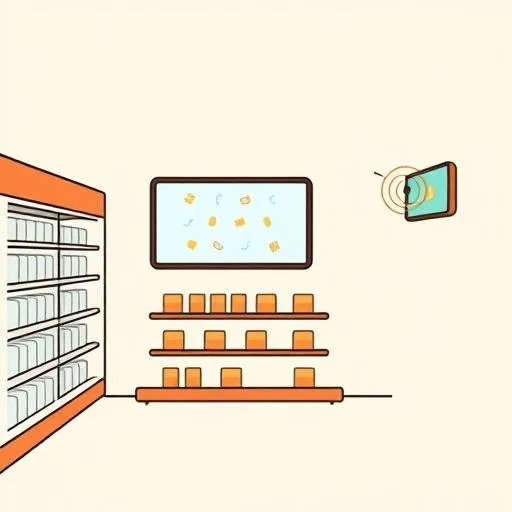
You know that moment? Another AI shopping headline flashes on your phone while you’re packing snacks for the playground. Suddenly you’re not thinking about corporate drama—you’re wondering how these smart stores will shape your kid’s everyday adventures. This Alpha Modus lawsuit against Creative Realities isn’t just legal jargon; it’s a peek behind the curtain of the very tech our children interact with during ordinary grocery runs.
What’s Really Happening in the Aisles?

Alpha Modus claims Creative Realities copied five key patents for systems that read shopper behavior and personalize displays in real time. Sounds like sci-fi? Not anymore—just last week my seven-year-old stopped dead in our local store when a screen showed her favorite cartoon as she walked by. The real magic here? Every innovative idea matters, even in crowded cereal aisles. When companies protect their creativity, it pushes everyone to build thoughtfully. For us parents, it’s a chance to whisper: “See this? Real people made this—just like how we build Lego castles together.” Because that spark of human ingenuity? It’s way more exciting than any wand wave.
When Smart Screens Spark Big Questions
Picture it: your kid freezes at a display showing their favorite dinosaur. “How did it *know*, Dad?” Don’t dodge with “it’s just tech”—turn it into a mini-adventure! Last Tuesday, my daughter and I played detective: “Did it catch your smile? Or remember when you picked dinosaur stickers last time?” Turns out, playful guessing builds real understanding—like spotting patterns in their block towers. These patent battles mirror what we teach at home: creativity needs room to breathe, but so does fairness. Same energy applies when they ask why apps ‘know’ their favorite snacks!
Building Backyard Innovation Labs (No Patents Required!)
Time to make it real. Forget screens for a moment—grab cardboard boxes and let them build a “smart” toy store! My daughter turned our porch into a marketplace where stuffed squirrels “shopped” for acorns. Her “smart signs” (sticky notes!) “remembered” preferences: bread baskets for Mr. Fluff, rainbow roads for Unicorn. Why does this click? AI crunches data, but tiny humans learn by doing. Sorting buttons by color becomes pattern-spotting magic faster than any app. Research shows kids retain more through tactile play—so next time they’re screen-glued, suggest building a “robot” from cereal boxes. Seriously, it’s sneaky genius disguised as playtime.
Questions Over Answers Guy: Navigating the “Magic vs Math” Mix
These lawsuits thrive on tiny ethical choices baked into big tech—just like parenting! During our next grocery trip, I asked my daughter: “If a screen picked dog-walking games for you, would it feel friendly or weird?” Her answer? “Only if it knows my dog’s name!” Moments like this build grit: kids develop digital smarts when we explore questions together, not lectures. Truth is, our role isn’t having all answers—it’s keeping that wonder alive while gently asking “Is this fair?” Funny how corporate debates about tech ethics? They’re practicing ground for kitchen-table talks.
The Heart of the Matter
In the end, this isn’t about courtroom fireworks—it’s about honoring original ideas. Like that moment last weekend when my daughter redesigned our messy toy shelf with “customer zones” (stuffed animals sorted by adventure type!). When your child melts down in the tech aisle, pause. Instead of pulling them away, wonder aloud: “What would YOU build to make shoppers smile?” Their hilarious 7-year-old answers—bouncy music kiosks? robot cookie samplers?—start with pure curiosity. That spark? Where imagination meets “what if”? It’s worth more than any legal victory. Because every sandbox question isn’t just play—it’s tomorrow’s world being built, one messy, magnificent idea at a time.
Source: Alpha Modus Files Patent Infringement Lawsuit Against Creative Realities, Inc., Reinforcing Its Leadership in AI-Driven Retail Innovation, GlobeNewswire, 2025/09/05 12:00:00
Latest Posts
